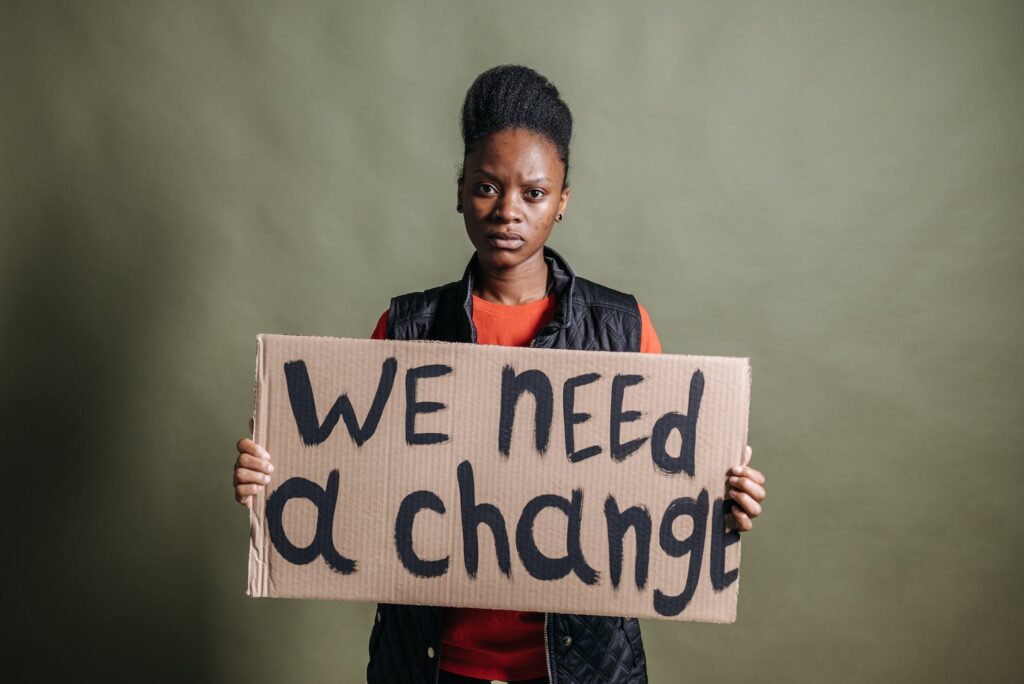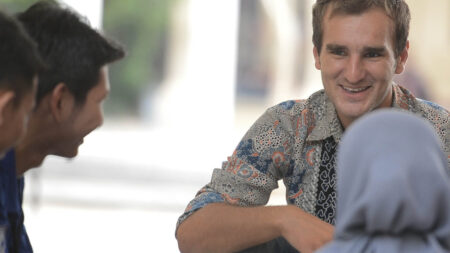
Green Success Stories sat down with Stella Mavropoulou, a Graduate of The London School of Economics and Political Science, who is passionate about human rights. Stella shares the intricate connection between human rights and the environment.
Tell us a little bit about you and your background:
I realized that my future path would be inextricably connected to human rights when I was selected to participate in the simulation of the European Parliament in Strasburg at the age of 15. That was the first time I got to engage with topics such as environmental migration and displacement. In this direction, I decided to pursue a master’s degree in Human Rights and Politics at The London School of Economics and Political Science (LSE) which actively helped me discover my passion for environmental justice-related issues. However, what actually triggered my great passion and avidity to delve further into climate activism was my participation in the Young European Movement in London.
Since 2021, I have engaged with numerous local actions and campaigns around climate change, while I have also been involved, among others, in the organization of the Climate Action Summer Academy in collaboration with the EU Delegation to the UK, where I had the honor to meet influential MPs and world leaders. Recently, I have started working as a Team Administrator at Huma, a global digital health company that seeks to decentralize digital healthcare and deliver it to everyone without any discrimination. Just like in my new job, I seek to do the same as an environmental activist: constantly self-educate, get inspired, act, and share my knowledge in the sector of environmental injustice and human rights. Even though I do not have many years of experience in this sector, I honestly believe that the future of our planet lies in the hands of young people that envision an environmentally more equal and justice-oriented world and this is something that I really want to fight for.

What is a fun fact about you?
I am so addicted to karaoke that you might find a karaoke microphone in my bag on a random day. You never know when a good chance for karaoke with your friends might come up.
Why do you think climate change and sustainability is such an important topic today?
I think that my generation grew up listening to the words “climate change” very often but not all aspects of it were given the same attention. Apart from the focus on the obvious disastrous consequences of the climate crisis on the everyday life of the average person, we were late in recognizing the disproportionate risks that it has brought upon for certain populations, such as communities of color. I believe that climate change will be a burning issue for a long time as it actually shapes the way in which our world functions and reveals the prevailing societal injustice.
Climate change is here to stay, and we need to acknowledge it in order to adapt and change. Thus, I would propose the implementation of a new system of environmental sustainability, which is more about creating systems that respect everyone and preserve the rights of all unique communities, rather than just building new energy infrastructure and promoting recycling. Sensitizing is not enough anymore!
What can the average person do to make a difference?
Of course, there are multiple things that the average person could do on a practical level in their everyday lives. However, I believe that the realization of the environmental injustice concept and its devasting consequences for specific communities constitute one of the most crucial steps toward making a real difference in the world. Only when people genuinely start to care for each other will we be able to make a real change in our environmental policies and practices. It is vital to make our voices heard by those in power and hold industries accountable for their actions.
The easiest way to do so is by investigating more on the products that we purchase in our everyday lives. Economic gain is often achieved through the deliberate contamination and exploitation of vulnerable groups, and this can be stopped through the boycott of industries of “fast fashion” and our turn to the local economy. Getting to elevate the voices of the environmentally impacted communities is the only way for humanity to “breathe again”.




